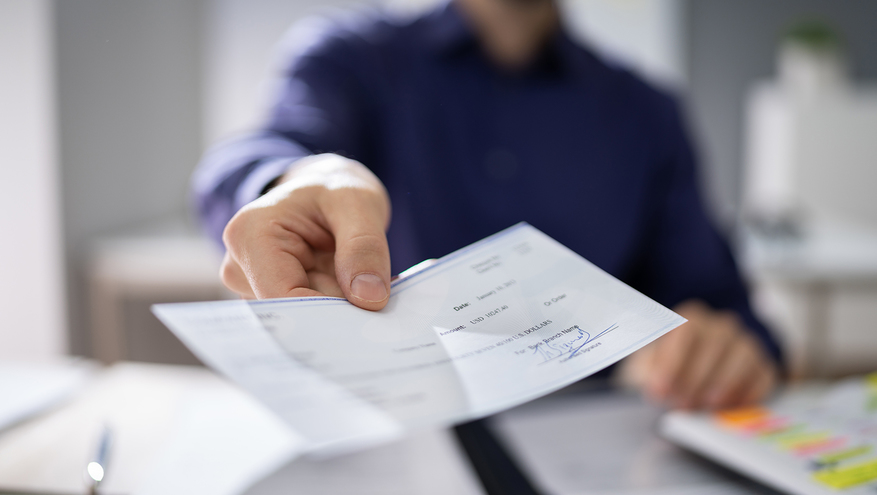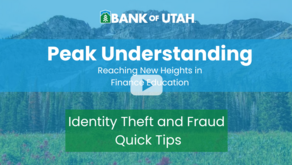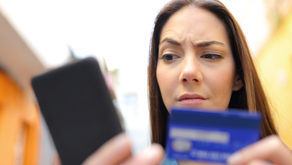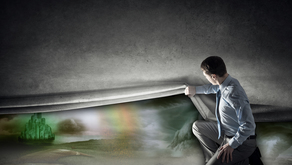The COVID-19 pandemic has created an environment where we all must be aware and active in protecting ourselves and families from a highly spreadable virus. While we’re doing our best to stay safe and healthy, fraudsters are devising new and clever scams that appear to be legitimate Corona Virus-related communications that can potentially trick people out of their income. Let’s talk about how to protect yourself from fraudulent check scams, and how we at Bank of Utah are working to protect you as well.
Being a victim of check fraud can take different forms. It might be as straight forward as discovering you’ve been paid or reimbursed from a company or individual with a fraudulent check, leaving you frustrated and out the money you are owed!
Potentially even more dangerous, you may unknowingly be pulled into a fake check scam. Here’s how this scam works. Someone writes a check for more than the agreed amount, and then asks you to deposit or cash the check and send them the overage as a refund. You’ll never receive the original amount planned on, and you’ve actually paid the fraudster in the process! Some common examples of this are, someone may be contacted that they’ve won a prize and told that to send back the taxes and fees. Or, someone might be selling an item online, and the buyer overpays and then asks that the difference be sent back. Also check fraud can happen in “secret shopper” programs where the shopper is told to wire back the money. In all of these cases, you are left unpaid and scammed into losing money!
So be vigilant when it comes to sending and receiving checks, and know that we are your partner in helping you prevent fraud. Have you ever been to the bank to deposit or cash a check and it takes a little longer than expected and you feel like you’re being investigated? It may seem like an inconvenience, but a good teller is doing their best to ensure that you aren’t becoming the victim of check fraud. And, they’re doing a good job. This year alone Bank of Utah’s tellers have stopped $79,303.37 in fraudulent checks from going through.
To fight fraud and safeguard that you’ll receive the money expected when bringing a check to the bank, Bank of Utah tellers are carefully trained in what to look for, what ask and when to put a hold on a check that cannot be verified.
Here is what we pay attention to when you bring a check to Bank of Utah:
- Is this a check you were expecting?
- Is the check from someone you know?
- What is the check for?
- Have you done business before with the person who is writing the check?
- When is the check dated? (Did you know checks are good for 6 months after the date of issue?)
- Does the signature match what is on file if it is a customer of the bank?
- Is the serial number in sequence with other checks we have received on that account? (The bank keeps records of all checks cashed so we can match checks of non-Bank of Utah customer’s checks as well.)
- Is there a memo? (Interesting Fact—Use of the memo line is higher with fraudsters than from legitimate check writers.)
- Is the check from out of state?
- Is the check made to a business? (We cannot cash checks made to a business and can only deposit to an account titled in the business name.)
- Is the check normal for the customer presenting the check?
- Is the check significantly larger than what the customer has in their account?
- Is the check made out to someone on the account?
Ultimately our goal at Bank of Utah is to make sure that with every check we deposit and cash, we are protecting and educating to prevent you from taking any losses. So, keep your eyes open to avoid fraudulent check situations and know that Bank of Utah is doing its part to help.
This blog was written by a former banking manager for Bank of Utah's Redwood Road branch.




